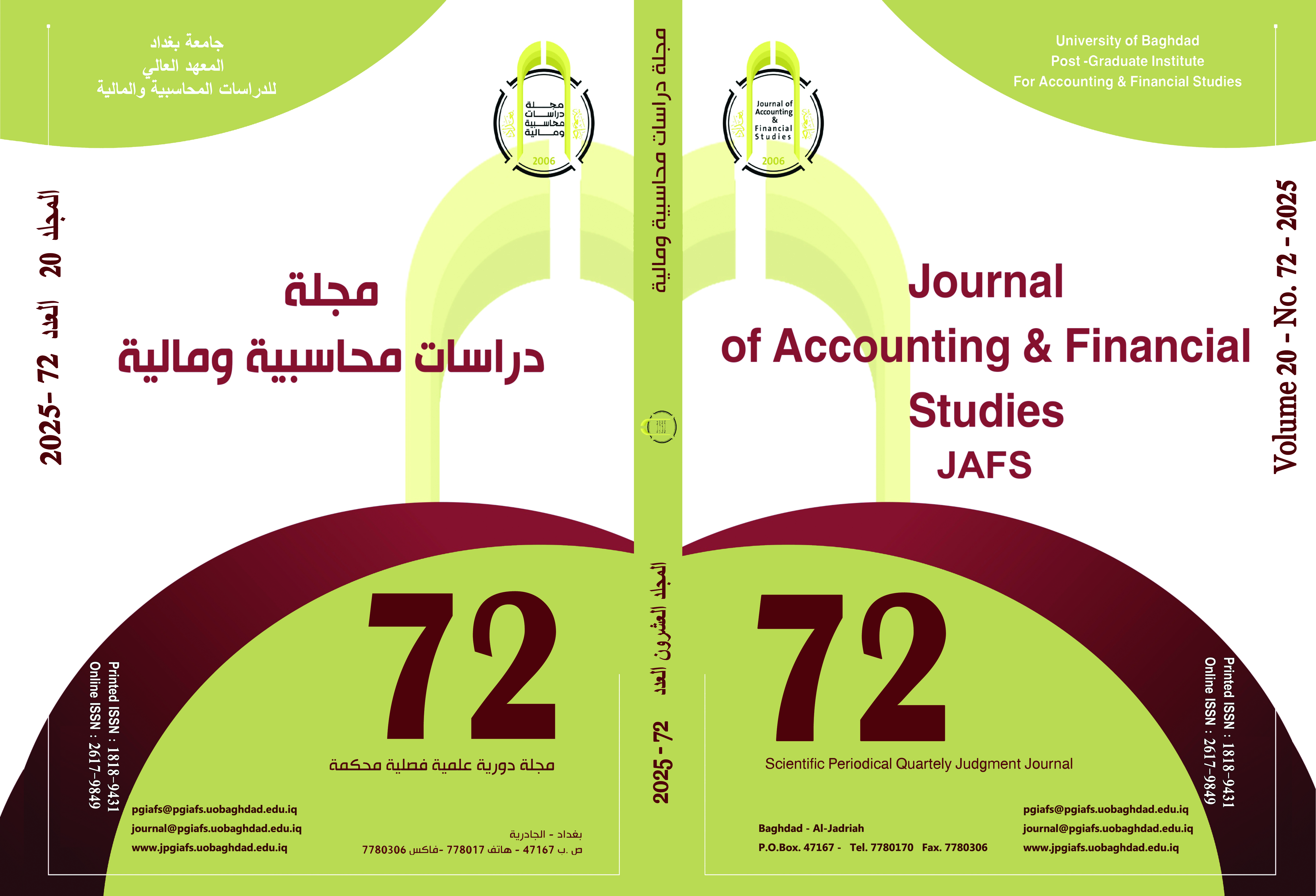دور الرقابة الاشرافية للبنك المركزي العراقي في الحد من عمليات غسل الأموال المنفذة عبر أدوات الدفع الالكتروني
بحث تطبيقي
DOI:
https://doi.org/10.34093/zcpkm041الكلمات المفتاحية:
غسل الأموال، أدوات الدفع الالكتروني، الرقابة الاشرافيةالملخص
يهدف البحث الى بيان الدور الاشرافي الرقابي للبنك المركزي العراقي للحد من ظاهرة غسل الأموال المنفذة عبر أدوات الدفع الالكتروني وبالأخص البطاقات المسبقة الدفع، واستند البحث على فرضية رئيسية مفادها الرقابة الاشرافية للبنك المركزي العراقي تحد من عمليات غسل الأموال المنفذة عبر أدوات الدفع الالكتروني، وللتوصل الى اهداف البحث ولإثبات فرضيته تم اعداد قائمة فحص (Check List) مكونة من (55) فقرة موزعة على (7) محاور، تم صياغة الفقرات بالاعتماد على تعليمات قواعد العناية
الواجبة للمؤسسات المالية للأعمال والمهن غير المالية المحددة تجاه العملاء رقم (1) لسنة 2023 ، نظام خدمات الدفع الالكتروني للأموال رقم (2) لسنة 2024 وعدد من الضوابط و التعليمات والتعاميم الصادرة عن البنك المركزي العراقي ومكتب مكافحة غسل الأموال وتمويل الإرهاب ، فضلا عن الاستعانة بتجارب بعض الدول العربية ،وتم تطبيقها في البنك المركزي العراقي وعينة من شركات الدفع الالكتروني البالغ عددها (5) شركات، وتم تحليل نتائج قائمة الفحص بالاعتماد على مقياس ليكرت السباعي (مطبق كليا موثق كليا، مطبق كليا موثق جزئيا، مطبق كليا غير موثق، مطبق جزئيا موثق كليا، مطبق جزئيا موثق جزئيا، مطبق جزئيا غير موثق، غير مطبق غير موثق)، وباستخدام التكرارات ومعادلات الوسط الحسابي المرجح والنسبة المئوية لمدى المطابقة و حجم الفجوة لكل محور ،كأساليب لتحليل النتائج ، وتوصل الباحثان الى مجموعة استنتاجات أهمها سماح البنك المركزي العراقي لشركات الدفع الالكتروني بإصدار البطاقات المسبقة الدفع وإعادة تعبئتها بحدود عالية نسبياً مما يزيد من مخاطر استغلال هذه البطاقات في عمليات غسل الأموال واعتماد هذه الشركات على استمارة (اعرف زبونك المخففة) (Light KYC) عند اصدار وإعادة تعبئة هذه البطاقات، مما يؤشر وجود ضعف في إجراءات التعرف على الزبون، فضلا عن صعوبة مراقبة حركة العمليات المالية المنفذة عبر البطاقات المسبقة الدفع الصادرة عن شركات الدفع الالكتروني وذلك لعدم ارتباطها بحساب مصرفي، وعليه يوصي الباحثان بمجموعة توصيات أهمها ضرورة قيام البنك المركزي العراقي بتخفيض الحد الأقصى لإصدار وإعادة تعبئة البطاقات المسبقة الدفع الصادرة عن شركات الدفع الالكتروني لتقليل مخاطر غسل الأموال المنفذة عبرها.
التنزيلات
منشور
إصدار
القسم
الرخصة
يتمّ نقلُ حقوق النّشر إلى المجلّة عند إخطار الباحث بقَبول بحثه المقدّم للنّشر في المجلّة.





